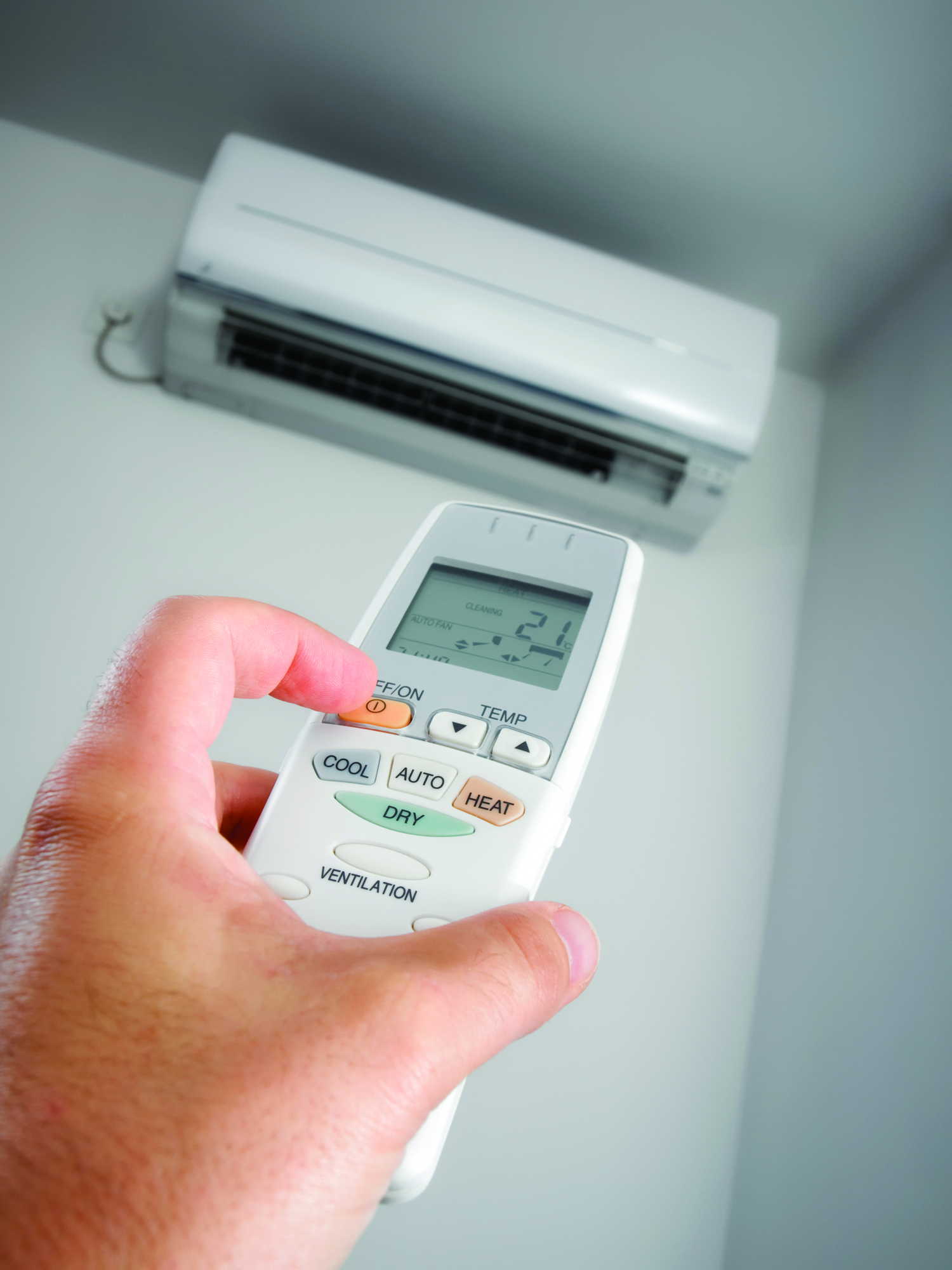Get pumped: whole-house heat pumps are here
By Tim King
CONSIDERED BY SOME to be something of a novelty just a few short years ago, today there are more than 20,000 heat pumps in use in homes and businesses throughout Maine.
While it may be hard for some of us to understand exactly how they extract heat from cold air, there’s no doubt that heat pumps have proven themselves as a viable, reliable alternative to heat created from more traditional means namely, oil-fired boilers and furnaces.
Although the main components of a heat pump are nothing special—a compressor, condenser and a circulating refrigerant—recent innovations have improved the performance so much that heat pumps can effectively pull heat energy from otherwise cold, subzero outside air, making them a very viable technology for colder climates.
In the last 3-4 years, heat pumps have quickly risen to become the goto solution for Mainers in search of a cleaner, more efficient and less expensive way to keep their homes warm during the winter. As an added bonus, heat pumps can also provide cooling relief
during those precious few moments of hot weather during the summer.
Yes, Virginia. Heat pumps do work in Maine!
“I’ve yet to have anyone say that they were not completely satisfied with how their heat pump has performed,” says Todd Genest, owner of Central Maine Heat Pumps. “After I finish the installation, I always mention to the customer that they need to call me right away if it turns out that the pump doesn’t work exactly as advertised—because they’d be the first one I ever got.”
The company, headquartered in Benton with a product showroom also in Westbrook, has seen steady growth in the awareness about and demand for the once “unknown” technology.
“A lot of people have to see something first before they’ll believe it,” Genest says. “But as soon as a friend or neighbor gets one—and tells them about how quiet it is and how much less they’ve spent on heat—people figure out pretty quick that this is the real deal.”
As a proven commodity, not only are heat pumps providing Mainers with an efficient way to deliver warmth to specific areas of their homes, increasingly, they are now installing heat pumps as their primary source of heating and cooling throughout the entire home.
In general, a single heat pump will work most efficiently in homes that feature a more “open” floor plan.
However, thanks to new technologies that have increased operating efficiencies, lowered overall project costs and improved room temperature controls, the recent introduction of multi-zone capable units has made the option of heating an entire home with heat pumps more attractive than ever before.
A growing trend toward a whole-house solution
According to Dana Fischer, the Residential Program Manager for Efficiency Maine, over the past three years, more than 20,000 households in Maine have installed heat pumps.
Recently, Fischer has also noticed a growing trend in the size, type and number of units being installed. Increasingly, homeowners are purchasing either larger units capable of servicing more than one area of the home or multiple units for presumably the same purpose.
“In the first year [of the Efficiency Maine rebate program] about 5% of the heat pump installations were multi-zone models. By year three, that number had jumped to 20%. People in Maine are definitely starting to use heat pumps as more than just a single, space-heating solution,” he says.
Fischer also found that, per capita, no other state in the country is installing heat pumps at a faster rate than Maine.
While pleased with these numbers, Fischer believes that Maine is still in the very early stages of a heat pumpinspired revolution. And, he believes that’s good thing for both Maine homeowners and Maine businesses.
“Right now, there are more than 400 Registered Vendors listed on EfficiencyMaine.com who have the knowledge, training and experience to design and install a very effective heat pump HVAC system solution for just about any type of residential application. Unlike other parts of the country, we have the skilled workforce already in place right here in Maine to take this technology as far as it can go.”
Companies such as Goggin Energy, ReVision Energy, Royal River Heat Pumps, Dave’s World in Windham and MAC Heat Pumps in Bangor are just a few of the many local businesses reporting brisk sales of heat pumps over the last 18-24 months.
“In less than 10 years, heat pumps went from practically non-existent to being the primary residential heat source for 1 in 4 households in the country of Norway, another cold-climate region with historically few home heating options,” Fischer explains.
“If the same thing were to happen here in Maine, a quarter of all housing units would equal more than 180,000 heat pumps. Seeing first-hand what a difference having a heat pump can make on a household’s annual heating budget, I don’t think it’s unrealistic to believe that a similar adoption rate would be possible here in Maine.”
As mentioned earlier, one way that Efficiency Maine is helping homeowners become more aware of their energy use—and encouraging them to take steps to reduce it—is by administering several valuable consumer rebate programs to help defray some of the costs to purchase new, more efficient equipment.
Currently, homeowners are eligible to receive rebates of $500 on qualifying heat pumps installed by contractors who are connected with Efficiency Maine.
As new technology is introduced to give ductless, air source heat pump consumers even greater flexibility and control, Fischer hopes to be able to expand the program to include remote temperature management tools such as wireless thermostats, mobile applications and other smart devices.
The simpler it is for homeowners to manage temperatures settings on multiple heat pump units throughout the house, the more attractive installing a whole-house solution becomes.
“Efficiency Maine has established ties with all of the major equipment manufacturers,” says Fischer. “We want to be proactively learning about what’s coming next so that we can set up incentive programs that include the most current models as soon as they become available.”
The game changer: variable speed compressors
Depending on a few factors, such as its location, the condition of the building, whether or not adequate weatherization efforts have also been completed and the current price of fuel, many air-source heat pumps can deliver an equivalent amount of sufficiently heated or cooled air for as little as one quarter of the cost of operating a conventional heating or cooling appliance.
One reason for this is that unlike a combustion appliance, such as a furnace, which can only “burn” at a single temperature, most modern heat pumps are now equipped with variable speed compressors and allow for much more flexible room temperature options.
A variable speed compressor is able to respond intelligently to changes in demand and either power up or power down depending on what the temperature control is calling for inside the home. This insures that the heat pump will always seek to operate at its optimal efficiency level. As a result, newer heat pumps generally use less energy, cost less to operate, and will likely last longer than models relegated to operating at only a single speed.
Turns out, just enough is plenty
The best part for homeowners is that even when the compressor modulates itself down to operate at only 30% capacity, no one inside the home will notice a change in their comfort levels. Once a home is initially brought up (or down) to a comfortable temperature, it takes a relatively small amount of energy to maintain it—say approximately the same amount of warm air that a heat pump could create when operating at just 30% of its full potential.
In fact, research suggests that a typical home rarely needs its HVAC equipment to actually operate at full capacity.
Weather data from the American Society of Heating, Refrigeration and AirConditioning Engineers (ASHRAE) shows that, on average, most locations in the United States experience weather conditions that require HVAC equipment to function at full (100%) capacity less than 5% of the year.
Further, ASRAE also determined that during the majority of the year (60%-80% of the time) equipment needed to only operate at 75% capacity to provide sufficient levels of comfort for occupants.
Heat pumps work smarter, not harder, than they have to
Similar to how cruise control improves a vehicle’s fuel efficiency by automatically increasing, decreasing or maintaining the precise amount of energy that’s needed for the vehicle to remain at a specific speed, variable speed compressors now allow heat pumps to automatically power up or power down according to how much heat energy they are being told to produce.
Not only has the introduction of variable speed compressors helped to dramatically improve operating efficiencies, it has also made it possible for a single compressor to now support up to 8 separate indoor air handling units.
These new multi-zone, multi-room, (“multi-splits”) heat pumps are making it easier and more affordable than ever to deliver warm, comfortable, air at different temperatures to different areas of the home. As a result, many in the HVAC industry see variable speed compressor technology as a real “game changer” that will widen the appeal of heat pumps even further in the very near future.
The gift that keeps on giving
Another point of difference between heat pumps and oil or propane fuel furnaces is that once installed, heat pumps require very little (if any) maintenance.
Most units are fully programmable, with easy-to-use temperature controls. Heat pumps can and typically will operate continuously for several months at a time. As the technology continues to evolve and become increasingly intelligent, heat pumps are truly becoming a “set it and forget it” type of appliance.
Although it can sometimes be hard to place a specific dollar amount on the value of purchasing a heating appliance that requires little-to-no maintenance, there are times when homeowners can actually take that savings right to the bank.
On a follow up call to one of his clients, Joe Maisonave, a project engineer and air source heat pump division manager at ReVision Energy, was pleased to learn that the heat pump(s) his team had installed several months earlier were performing well and had also improved the overall comfort of the homeowners.
Shortly after the installation, the homeowners decided that they no longer needed to keep their oil-burning furnace operating “just in case” the heat pumps stopped working – because it never did.
“They told me that not only were the heat pumps saving them money on their utility bills each month, the pumps were now making them money as well,” recalled Maisonave. “When I asked him to explain, he said that because they had shut down their furnace, they no longer needed to spend $250 every year just to have it serviced. For him, that’s money that can go right into his pocket.”
Now, isn’t that the best kind of money there is?
This article is reprinted from the fall 2016 issue of Green & Healthy Maine Homes. Subscribe today!



